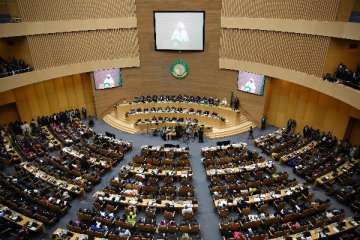
China International Capital Corporation (CICC) expects China's annual infrastructure investment is still likely to grow more than 15 percent in 2016. CICC made the projection on basis of more fiscal supports, releasing of special construction fund from China's top economic planner - National Development and Reform Commission (NDRC), significant growth in local governments' debt swap scheme, and acceleration of public-private-partnership (PPP) program implementation this year.
As the investment bank estimates, China's infrastructure investment may mount up to at least 1.6 trillion yuan in 2016 if it simply annualizes the amount of special construction fund NDRC arranges to spur investment and economy for the first quarter to calculate the annual data.
Recently, NDRC unveiled six packages of measures and policies to expand effective investment, under which it arranged 400 billion yuan special construction fund for the first quarter and pledged to plan more for the following quarters of this year.
To efficiently bolster investment, NDRC requires the special construction fund to be pumped into projects in key areas where investment returns can be guaranteed, no new production capacity will be added and no existing businesses will be squeezed out. Prior to this, China's Ministry of Housing and Urban-Rural Development and ex-policy lender - China Development Bank (CDB) have joined hands with Agricultural Development Bank of China (ADBC) to crank up financial supports to construction of sponge cities, referring to cities with maximized capacity to withstand natural disasters, in particular rainfalls.
In January, NDRC approved 21 fixed-asset investment programs, involving 54.1 billion yuan of investment in total and most of them are water conservancy and energy projects. In view of past experience, NDRC laid stress on not only railway, highway and infrastructure projects, but also programs on ecological and environmental protection such as sponge city and underground pipeline tunnel projects, as well as clean energy projects.
Chinese localities are also busy scaling up their infrastructure investment. So far, Hebei, Fujian, Ningxia, and Xinjiang have all proposed concrete tasks and targets on speeding up key projects construction. Beijing, Qinghai and Yunnan announced clearly their plans to build sponge city and underground pipeline tunnels. Other provinces such as Yunnan mapped out guidelines to push forward key projects construction, effectively foster social investment, add urban infrastructure input, and encourage producers to boost sales and expand production.
All of these growth-stabilizing policies help improve demand for lending, says Lian Ping, chief economist of Bank of Communications, adding that progression and construction of various programs will further bring up financing, especially mid- and long-term lending demand.
To better stabilize investment and economy, China's proactive fiscal policy is expected to play a bigger role and deeper tax reduction, general tax burden easing for manufacturing industry, increasing fiscal expenditures on people's livelihood improvement such as medical care, education, and social security as well as new infrastructure construction fields including underground pipeline tunnel and sponge city, energy saving and emission reduction, and intelligent manufacturing, an around 3-percent fiscal deficit, and more supports by policy financial institutions for government-supported industries and businesses are suggested, Li Huiyong, chief macro-economy analyst of Shenwan Hongyuan Securities holds.
























Latest comments